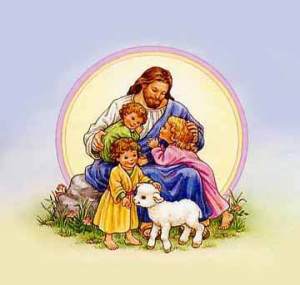Just last week, I was speaking with one of my professors at Seminary. Our conversation led to the topic of hunting for God. Seeking to find God’s presence and activity here, in our everyday lives. Looking for moments where the curtain is pulled back and God is revealed right in front of you.
My wife, Lauren, and I call it finding God through goose bumps. We both agree that we have always felt that there was something about those goose bump moments that is holy and divine. Whether it is an intimate moment with a friend, a cool breeze on a night time walk, or even a moment of fear, the goose bumps always focuses us into the present moment. It is as if God whispering, “This moment is important, pay attention. Be present to it.”

Well, there was an event this past Spring that still gives me goose bumps. It was an event where one woman stunned Britain, America, and the entire world. Susan Boyle. Do you all remember Susan Boyle? Have you heard of her? She wowed the world and lit up the internet after her performance of “I Dreamed a Dream” from Les Miserables on the television series Britain’s Got Talent. Her voice was stunning, her performance was immaculate, and her appearance….well, that’s just the thing. Her appearance was neither. It was not stunning; it was not immaculate. It was awkward; it was disheveled; it was scattered.
Boyle, an ordinary 47 year-old Scottish woman was against all odds the moment she walked out on stage to sing. Based on her appearance, expectations were low and everyone knew it. The audience rolled their eyes. The judges snickered and were sarcastic. But then she started to sing and the whole world sort of shook on its axis. Jaws dropped; eyes widened. At that moment, everything we thought we knew, everything we expected to happen, melted away. This woman, Susan Boyle, should have failed. She should have offered us a mediocre and karaoked version of an otherwise beautiful song. But that didn’t happen. Not even close. Instead she delivered a jaw-dropping performance, revealing a voice we assumed she could never have and essentially breaking the rules on how we understand the world to work. Just for that moment, all the rules were broken. Susan Boyle, of all people, had the world as her audience and it changed her life. That still gives me goose bumps.
Well, I think this is what happens in our Old Testament text. The rules are broken and God shows in the unexpected.
Our story for today comes from the Book of First Kings. First Kings shares the story of how many kings of Israel found their way to the throne. And right in the middle of this book, we encounter a new prophet, named Elijah. Our text today picks it up when God has told Elijah to go to Zarephath, where the Lord has commanded a widow to feed him. So Elijah goes to this place and tells this woman to bring him some water to drink and bread to eat. And the woman replies, “As the Lord your God lives, I have nothing baked, only a handful of meal in a jar and a little oil in a jug; I am now gathering a couple of sticks, so that I may go home and prepare it for myself and my son, that we may eat it, and die.” “As the Lord your God lives, I have nothing baked, only a handful of meal in a jar and a little oil in a jug and death is knocking on my door.” Things are not looking good. This woman makes it clear that this is not her God , for she is not one who worships the God of Israel, but one worships a pagan storm God, named Ba’al. And not only is she a woman who does not believe in the God of Israel, but she is a widow with very little meal and very little oil. She is among the poorest of her community, a community already ravaged by a drought.
Yet, God chose her, the poorest of the poor, to provide for and sustain this prophet, this man of God. A non-believing widow in a land with no food or drink, who is ready to curl up and die. Things are not looking good; we know how this story will end. The rules of the world tell us that things will go exactly as she said. The rules of the world say that a woman in her situation will die, curled up and hungry. But that is not what happens. Not even close. Instead, as the widow hesitantly goes and does what Elijah said she finds that her jar of meal and her jug of oil have been filled to the brim. The least expected person, whom we knew could never provide for Elijah, is suddenly the perfect person for the task. The text says, “And they all were able to eat for many days.” Everything we thought we knew was wrong; all the rules were broken.
And so I am left with goose bumps after reading this story. Because who would have thought that in this moment God would call upon this woman. This woman who does not believe in God. This woman who is the poorest of them all and ready to die. Who would have thought?
Now, I have to ask. Does this story sound familiar at all to anyone? A story about drought and resources drying up. A story about fear and death knocking at the door. Isn’t this Augustana’s story? Isn’t this what Augustana has been going through the past year, if not longer. Fear that the money is drying up? Rumors that the church might be closing soon? If this is true, if this is our story, then perhaps just as God does with the widow, perhaps God is calling this congregation to do God’s work. To provide for God’s people. To reach down deep into our jars, into our deepest desires and to give of ourselves.
And that’s exactly what we’ve been doing. We have been reaching down deep into the resources of Augustana, Looking for what’s at the core of this church. And if I may say so myself, I think we’ve found that our jars are quite full. That it is not death knocking at the door, but God. God is at the door inviting us to use the resources that we still have. Inviting us to strengthen our relationship with Augustana Care Center and to serve that community more fully. Inviting us to reclaim Community Emergency Services, our food shelf, and serve the people of Elliot Park and Phillips neighborhood. Inviting us to partner with one of our own church members to start a community building and community empowering bike shop. God uses the unexpected ones to provide for God’s people. This is Augustana’s story.
And it is not only a story of our community, it is a story for us as individuals. You may be a member of this congregation. You may simply be passing through as a visitor, or you may be looking for a church home. But I believe that this is our story as individuals as well and that the message is the same: God will use you. Whether you are the richest king or the poorest widow, God will use you. God’s calls upon you. Not someone younger or older. Not someone with more money. Not someone with more training. You.
So what’s your deepest desire? So what gives you life, what fills up your jars? And how might God be calling you to give out of your deepest desire? When Susan Boyle walked out on that stage, she took the light of God that was deep within her and she stopped hiding it under a bushel. That same light of God resides within you, and it shines brightest, as Fredrick Buechner says, “where your deep gladness meets the world’s deep need.” So what’s your deep gladness?!
What’s amazing, I think, is that when you do that, not only do you find that you yourself are filled with new life, but others around you are inspired to give of themselves as well. It’s contagious! I mean, look at the rest of our story. This widow gives the last of her meal and oil to the prophet, Elijah. And when her son gets ill and dies, Elijah is moved to plead before God on the widow’s behalf. He stretches himself across the son three times and cries, “O Lord my God, let this child’s life come into him again.” And life came back into the boy. The widow never knew that when she fed Elijah the last of her food, she was saving the life of the man who would save her son. When you give out of your deepest desire, you inspire those around you to do the same. Imagine what that could mean for our families, for our congregation, for the world. Each person opening themselves up to God’s use.
Now, this may be an older and small congregation with limited resources. You may think you are the least likely person for God to call upon, but God is at work breaking all of the rules, calling upon the least likely and the unexpected. So keep your eye out for God, for those goose bump moments where God might be calling. Because God is not through with this congregation and God is not through you. In fact, God will never be through with you. AMEN
 When I first read this text, I couldn’t help but think that it is the perfect text for this time of year. Weeks ago schools all over welcomed children back for another year of learn. Just last we started our own Sunday school and welcomed the children what a drastic change from the Jesus we’ve had the past two Sundays. And today Jesus says, “Welcome the children! Bring in the children. When you welcome them, you welcome me. And when you welcome me, you welcome God.” It is so perfect. It is so peaceful. It is the Kodak moment, in which picture Jesus holding the children in the palm of his hand, and then we plaster it on church bulletins everywhere.
When I first read this text, I couldn’t help but think that it is the perfect text for this time of year. Weeks ago schools all over welcomed children back for another year of learn. Just last we started our own Sunday school and welcomed the children what a drastic change from the Jesus we’ve had the past two Sundays. And today Jesus says, “Welcome the children! Bring in the children. When you welcome them, you welcome me. And when you welcome me, you welcome God.” It is so perfect. It is so peaceful. It is the Kodak moment, in which picture Jesus holding the children in the palm of his hand, and then we plaster it on church bulletins everywhere.